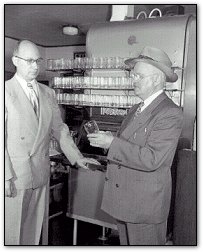French food safety inspectors failed to detect salmonella contamination at a plant belonging to dairy giant Lactalis, three months before the company carried out a major recall of baby milk, a report said Wednesday.
 Lactalis, one of the world’s largest producers of dairy products, discovered the bacteria at its factory in Craon, northwest France, during tests in August and November.
Lactalis, one of the world’s largest producers of dairy products, discovered the bacteria at its factory in Craon, northwest France, during tests in August and November.
It did not however report the find to the authorities.
Officials from the food safety department carried out a routine inspection of the site in September and gave it a clean bill of health, the Canard Enchaine investigative weekly reported.
It was only three months later, after around 30 infants being fed Lactalis powdered milk fell sick, that the health ministry sounded the alarm.
Officials from the national anti-fraud bureau swooped on the site on December 2 and found the assembly line where liquid milk is transformed into formula to be contaminated.
Lactalis issued two major recalls covering all production from the site from February 15, blaming the contamination on renovation work.
The plant has been at a standstill since December 8.
Lactalis is under investigation over the affair.
It could face charges of causing involuntary injuries and endangering the lives of others.
Market food safety at retail so consumers can choose.
Audits and inspections are never enough: A critique to enhance food safety
30.aug.12
Food Control
D.A. Powell, S. Erdozain, C. Dodd, R. Costa, K. Morley, B.J. Chapman
http://www.sciencedirect.com/science/article/pii/S0956713512004409?v=s5
Internal and external food safety audits are conducted to assess the safety and quality of food including on-farm production, manufacturing practices, sanitation, and hygiene. Some auditors are direct stakeholders that are employed by food establishments to conduct internal audits, while other auditors may represent the interests of a second-party purchaser or a third-party auditing agency. Some buyers conduct their own audits or additional testing, while some buyers trust the results of third-party audits or inspections. Third-party auditors, however, use various food safety audit standards and most do not have a vested interest in the products being sold. Audits are conducted under a proprietary standard, while food safety inspections are generally conducted within a legal framework. There have been many foodborne illness outbreaks linked to food processors that have passed third-party audits and inspections, raising questions about the utility of both. Supporters argue third-party audits are a way to ensure food safety in an era of dwindling economic resources. Critics contend that while external audits and inspections can be a valuable tool to help ensure safe food, such activities represent only a snapshot in time. This paper identifies limitations of food safety inspections and audits and provides recommendations for strengthening the system, based on developing a strong food safety culture, including risk-based verification steps, throughout the food safety system.
